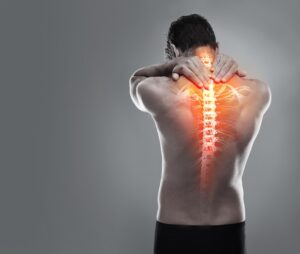
A new study, featuring more than 3,600 adults, found that those with relatively low bone density were at higher risk of being diagnosed with dementia within the next decade. One-third of the participants with the lowest bone mass in the hip faced double the risk of dementia as the third with the strongest hip bones.
The researchers made sure to clarify that the findings, which were published in the journal Neurology, do not mean that thinner bones cause dementia.
Instead, they suspect that declining bone mass may be an early indicator as a step of the dementia process before problems with memory and thinking skills become noticeable.
This is not the first study to connect bone health and dementia risk, but it presented new findings in the sense that it offered a timeline for when the dementia process may begin.
It’s not entirely clear why bone and brain health are connected, but part of the story could be linked to a lack of physical activity and poor nutrition. Both what a person eats and how much they move are proven to impact both bone and brain health.
A nutrient-poor diet and low levels of activity are linked to bone loss and cognitive decline. On the other hand, people with cognitive decline can become less active or change their eating habits for the worse, which can affect bone density.
Researchers analyzed data from a long-running health study that began in 1990. They focused on 3,651 participants who, in the early 2000s, were mostly in their 60s or 70s and underwent bone density testing. None of them had dementia.
By January 2020, about 19 percent were newly diagnosed with dementia; most were Alzheimer’s.
On average, the findings showed that people who had the lowest bone density at the outset were at an increased risk for developing dementia, particularly within the next ten years.
That said, it is important to remember that bone loss is very common with aging, and most older adults with thinning bones will not go on to develop dementia.
You can do your best to slow bone loss and perhaps dementia by staying physically active, eating a healthy, nutrient-dense diet rich in calcium and protein, and staying socially engaged.